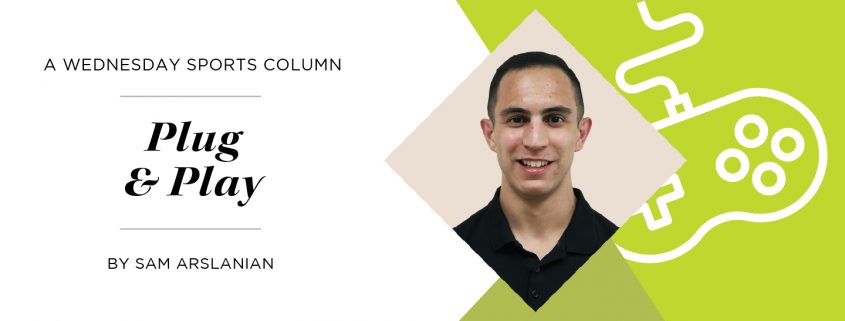Plug & Play: Esports is having its own issues with China
While everyone was focused on the situation between China and the NBA over a week ago, esports had its own controversy.
Activision Blizzard, the maker of Hearthstone, banned Chinese Hearthstone player Chung “Blitzchung” Ng Wai from competitive play after he verbally supported the Hong Kong protests on a Hearthstone official stream.
“Liberate Hong Kong. Revolution of our time,” Blitzchung said in Mandarin in an interview while wearing a gas mask and a pair of goggles.
As his punishment, Blitzchung had to forfeit all of his current season prize earnings and was issued a year-long suspension.
Several days after handing down the ban, Activision Blizzard issued a statement in an effort to clear the air around the actions of pro players.
“Esports exist to create opportunities for players from around the world, from different cultures, and from different backgrounds, to come together to compete and share their passion for gaming,” the statement read.
This situation shares some similarities with the recent NBA controversy of the past week. Houston Rockets general manager Daryl Morey received harsh criticism after he tweeted in support of the Hong Kong demonstrations. The difference: It was the Chinese government and sponsors taking action against Morey and the Rockets, the NBA and commissioner Adam Silver. Silver actually backed Morey’s right to voice his opinion.
Blizzard also stated that the content of Blitzchung’s message did not have an effect on the penalties enforced.
Given the recent events concerning the NBA and China, that’s hard to believe.
China wants to control the narrative. Even outside the country, China can do just that through its harsh penalties for those who dare to speak against the government.
What this likely comes down to, as everything in the modern world does, is money. Activision Blizzard has a massive player base in China, and a significant portion of its professional players are from there. Activision Blizzard needed to act fast; it did that with a snap-call ban. No warnings, no discussions, nothing.
It’s the same argument as the Colin Kaepernick kneeling situation. How much authority does the league or company have? Technically, all of it.
These are private entities, and if NFL Commissioner Roger Goodell doesn’t want players kneeling during the national anthem, he can make that law if he wants to.
In the same way, Activision Blizzard can prevent players from supporting the Hong Kong protests if it chooses to do so. It may not be morally right, but it’s not illegal.
The difference between the NBA and Activision Blizzard is that Silver backed free speech, citing that it is not the NBA’s place to police what its people say.
Silver’s decision tells players, “We want you here for who you are.”
Blizzard’s decision tells e-athletes, “Keep your mouth shut and play.”
“Moving forward, we will continue to apply tournament rules to ensure our official broadcasts remain focused on the game and are not a platform for divisive social or political views,” Blizzard’s statement read.
This portion of the statement sounds harsh, but the company’s intent is understandable. Foremost, Blizzard doesn’t want to look like it supports what its players say, and it is willing to limit its players to just playing the game to ensure that it doesn’t cross any boundaries.
Blizzard made Blitzchung an example. He is an example for professional players to limit themselves to solely the game when they are “on the clock.”
The last edition of this column discussed the importance of community within the burgeoning industry of professional esports. Blizzard’s short-fuse reaction has damaged its reputation — even though it later reduced the ban to six months and gave Blitzchung his prize money. Players shouldn’t have to look over their shoulders every time they speak their minds.
It sounds like Blizzard will only limit what players say when they are appearing on official Blizzard content. What happens if the protests continue or grow and more players start speaking out? Does Blizzard let them do that on their own time? Will Blizzard want outspoken activists on its roster? How will it react if the Chinese government pressures it?
The answer is unknown, but Blizzard needs to make it very clear to its players what they can and cannot say and when they can and cannot say it.
Above all, it must ensure that it doesn’t disturb or attempt to influence the gaming community.
Sam Arslanian is a junior writing about esports. He is also a former sports editor of Daily Trojan. His column, “Plug & Play,” runs every other Wednesday.

